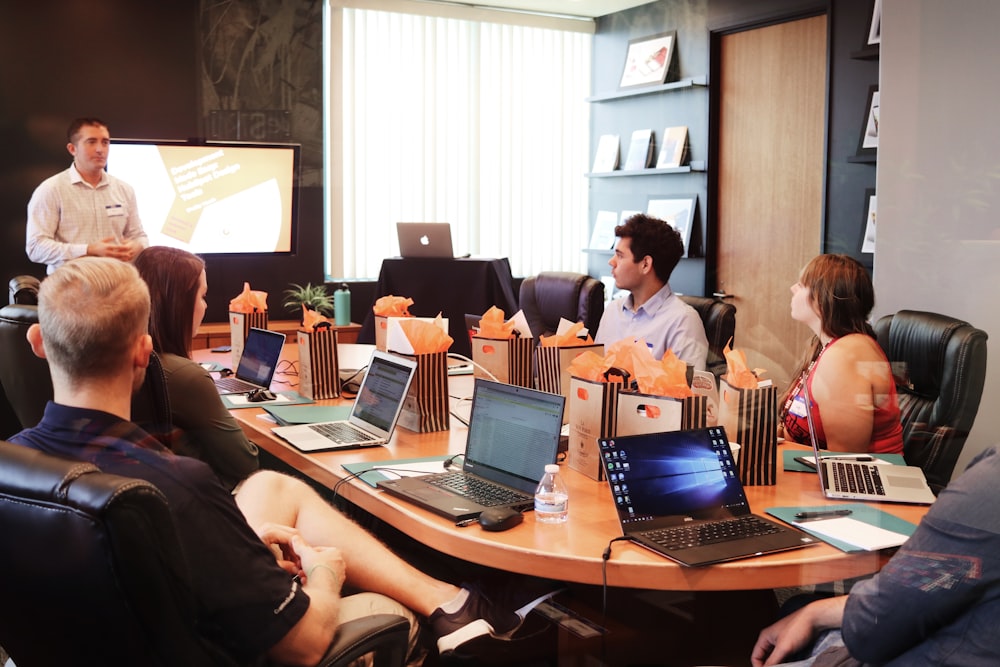An organizational consultant gives long-term assistance to help the organization develop and expand in the proper path.
Are you motivated by the prospect of transforming organizations through your organizational consulting skills?
Are you capable of assisting corporations in achieving their objectives?
Great! It does sound intriguing. If you are still unsure, this section contains answers.
Organizations are constantly on the lookout for specialists to advise them. You can become one by utilizing your knowledge and desire.
Have you conducted all necessary research?
Alternatively, do you have a few inquiries?
Are you interested in learning more about your responsibilities as an organizational consultant?
Are you curious about how to attract high-paying clients?
Are you interested in learning the secrets to developing a thriving consulting practice?
Not to worry, I will address any of your concerns.
You will notice that numerous enterprises encounter daily obstacles if you look around.
Have you encountered managers that are incapable of resolving their organization’s problems? Have you discovered any organizations that have suffered operational losses?
Isn’t it true that there are numerous such organizations or businesses?
Do you believe they require appropriate consultation?
Do you believe they should effect change within the organization’s culture? What are the best strategies for assisting an organization in achieving its objectives?
I will explain how.
If you’re interested in the difficulties that an organization faces, put yourself in the shoes of an organizational consultant and attempt to resolve them.
However, before that, some fundamentals need to be understood. Thus, we begin.
Who is an organizational consultant?
A consultant for organizations promotes constructive, systemic change within the—one who develops leadership aptitude and affects organizational cultural transformation.
What is the purpose of organizational consulting?
By upgrading, a business can achieve its goals. This is a need for a large number of companies.
I’ve witnessed how many organizations fail due to a lack of suitable plans.
As an organizational consultant, you can scale change across the enterprise.
Unlike executive or leadership consulting, you focus on an organization’s broader needs.
A business is structured hierarchically and hence has many degrees of employees.
How can we ensure that the top management’s action plan is in sync with the middle management?
What actions are required to bring everything together?
As an organizational consultant, you can provide leadership to the entire team. You can contribute to the future improvement of the organization’s system.
You can accomplish this by honing specific abilities.

The top abilities need to succeed as an organizational consultant.
Consider the importance of skills in today’s digital environment.
Many people possess unique abilities but are unaware of them.
You’ll need an eye to spot their abilities.
It is concealed from you.
Investigate your secret self and forge a new path for yourself.
Look for it within.
As an organizational consultant, you must be an excellent listener.
It is, in my opinion, the most critical skill.
It is hardly frequently used. I have always taken action following a listening session in my consulting career.
That is the correct procedure.
Is it feasible to tackle an organization’s problem without listening?
No, it’s similar to working for anything without knowing why.
Effective listening is critical to the development of any company.
You must be receptive to the concerns of individuals within an organization.
Individuals desire a confidant with whom they can open up.
I take in anything that employees say. They create a sense of security and trust.
I genuinely care about their concerns. Otherwise, how am I to know what they are missing?
Effective listening enables individuals to express their emotions and thoughts.
With a variety of clients, I attempt to decipher non-verbal cues. You must pay attention to your client’s body language. This is precisely what listening ability entails.
Certain groups may object to the organization’s culture. They may not communicate verbally but may do so through their facial expressions.
This ability took time for me to develop. However, I quickly built it to ascertain my clients’ strengths and limitations.
Investigate alternates
Do you believe that individuals within an organization are shackled to a particular point of view?
Are there organizations that are unsure of their next steps?
I’ve encountered some businesses that lack vision.
They become immobile.
As an organizational consultant, it is your responsibility to identify more practical solutions for them.
For instance, individuals within the firm may be unable to generate sufficient sales.
How can we demonstrate a different perspective to them? What can they do to boost revenue?
You must assist them in discovering new avenues.
Inquire or clarify
If you are going to listen to others, you must also ask questions.
The questions should be concise, compelling, and open-ended.
When people tell me about their problems, I ask them the following:
Why are you so concerned?
What is necessary for you?
What are your objectives?
The same holds for organizations. Through these inquiries, you must nudge the enterprise toward its objectives.

Control your emotional intelligence
Are you capable of managing your emotions?
Are you capable of managing your stress?
If you can accomplish that, it’s relatively simple to comprehend the feelings of others.
Empathize with the perspectives of others within an organization. This will assist you in managing your clients’ emotional intelligence.
It is a rare quality that can only be acquired via experience.
After that, distribute the business strategy to your clientele.
Individuals will gravitate in the direction you specify.
Each member will receive excellent feedback if you’re leading a large team.
You must examine all suggestions and come up with a solution.
This ability aids in determining what the team desires.
You must ascertain-
What is their ancestry?
How committed are they to their work?
Is your approach emotionally compatible with theirs? How can you make things better?
All of the information will assist you in developing the optimal business strategy for your corporation.
Educate and train the public
What does an organization’s workforce lack? Observe the staff and ascertain their flaws.
Assist them in overcoming their shortcomings. You can assist them in their efforts.
For instance, I’ve advised a couple of my clients who were unsure how to sell. I taught them the fundamentals.
I could do that; in fact, I have done it multiple times in the course of my business.
Notifying staff of the strategies may not always be practical.
You must instruct them on how to employ those tactics. As a result, you must provide them with training in this area.
Following the training, instruct them to resolve the matter on their own.
This is the role of a consultant. Even in sports, you may have witnessed how the consultant requests that the squad play independently.
The consultant guides them if they fail. Likewise, organizational consulting is applicable.
As an organizational consultant, provide advice and assistance.
You may come across individuals who are unable to make difficult choices. Assist them.
I counsel each team member individually.
Individuals may be unwilling to listen to you as a team.
Individual therapy ensures that everyone is taken care of. This enables you to form a team.

As an organizational consultant, develop intuition.
Can you tell when anything is wrong?
Does this nagging sensation frequently plague you?
I’m referring to a soft skill. Simply put, it is our GPS.
Many people do not use their gut instincts, even though they know them.
As an organizational consultant, it is your responsibility to cultivate this wisdom.
It is acquired through experience.
Recall your previous experiences.
Determine the situations in which you defied your instincts.
In this manner, you can cultivate an intuitive ability.
What issues might a company encounter? How are we to handle it? All of these inquiries are addressed by your intuition.
What is the outcome?
As a consultant, you can ultimately make more intelligent selections.
Capability to empower a team
Do you believe it is appropriate to spoon-feed the team for the task at hand?
No. They will never be able to perform the work independently.
As a result, you must possess the ability to empower your team.
What does this imply?
All you need to do is communicate the task to your team.
Following that, assign the team the obligation of completing the job.
I delegate decision-making to the team.
It is beneficial.
Otherwise, empower the team. Provide them with appropriate guidelines. If they become stuck, you are always available to assist them.
This ability will aid your squad in developing their strategy. Your half-job will be completed.

Concentrate on the team’s requirements
As a consultant, you must devote 100% of your attention to the client’s needs. What is the organization’s mission?
Why do they require your assistance? What can you do to help them the most?
This requires you to set aside your plan and work with total dedication and commitment to the team.
I’ve observed consultants straying from their assigned roles. This is not acceptable when you work as an organizational consultant.
Concentration can assist you in achieving organizational goals within a specified time frame.
Provoke your clients
I assist my clients while still assigning them complex tasks.
Do you wish to keep the consulting process as straightforward as possible?
No.
As a result, do not be afraid to assign challenging assignments to your clientele.
How do we maintain equilibrium? You must acquire that ability. Not to worry; once you’ve gotten to know your squad, you’ll learn how to confront them.
Your clients will acquire confidence and clarity in their work due to challenges.
Engage your clients’ interest
Why is this ability critical?
It enables you to collaborate with the organization on strategies. How are you going to accomplish this?
Develop ties within the organization through a variety of instances or presentations.
Share your experiences.
Speak in a language that the team understands.
Your listening and learning abilities should be strong for this.
I share true stories with my clients. They find the entire process fascinating and gain valuable knowledge from it.
Experiment with your clientele and observe the difference.
Motivate and assist
The team may surrender. They may fail and hence not proceed.
In certain instances, your motivating abilities may be advantageous.
What else are you capable of?
Attempt to recognize others. Assist them.
Inform them of their options and the significance of failing.
Motivation can assist your clients in overcoming their failures, which can result in future success.
Utilize your inventiveness
This ability works in conjunction with others. Are you attempting to broaden your team’s horizons?
As a result, your inventiveness and tools are necessary.
For instance, regular team-building or human resource activities can increase engagement.
There are numerous additional strategies, tools, and processes that you might employ.
Make the consulting programs more intriguing and engaging by utilizing your creative abilities.

As an organizational consultant, who are your possible clients?
Are you aware of your potential customers?
No?
It is critical to understand who your prospective clientele are.
Which cause do you wish to support?
Are these organizations tiny or large?
Is this clientele domestic or international?
You must create a list based on your experiences. After that, determine which organizations meet your criteria.
I’ve worked as a consultant for successful startups and Fortune 500 corporations.
Frequently, clients approach me during a seminar. Thus, attendees at workshops, business meetings, or other social gatherings are your prospective clientele.
Your prospective clientele includes startups, small and large multinational corporations, as well as domestic and international businesses. Your best clients may come from various industries, including automotive, real estate, hospitality, technology, and finance.
You must first choose your area of interest and then create a list of people to contact. The market for organizational consultants is vast; all you have to do is knock on the right door.
Isn’t there an excellent chance in front of you?
Approach them and become a part of your prospective clients’ success stories.
Is certification required to work as an organizational consultant?
As an organizational consultant, it is your responsibility to motivate an enterprise’s team.
Is it necessary to obtain a certificate for that? What type of certification do you require?
Do you have similar inquiries?
You are not required to get a certificate to begin a corporate consultant business. However, you can pursue certification to advance your talents and business.
It is recommended that you obtain training in specific sectors to provide better consulting. This can assist you in earning particular certificates.
Programs of special certification for organizational consultants
To become a competent organizational consultant, you can enroll in human resource management, teaching, and consulting courses.
These programs are critical because they teach you how to:
-Effective communication skills
-Motivational strategies
How do you establish organizational goals?
Are you interested in learning how to create a relationship with your clients?
These programs can assist you in acquiring this knowledge.
Is certification required even if you have consulting skills?
It is not necessary, in my experience. You can earn a qualification to bolster your abilities. Additionally, you can evaluate them.
You might join the International Association of Consulting, IAC, or the International Consultant Federation, ICF, for such programs.
How much can an organizational consultant earn?
Numerous consultants have inquired, ‘How much money does an organizational consultant earn every year?’
They are keen to embark on a corporate consulting career.
Numerous elements are taken into account while determining how well to earn.
Your abilities, competence, and experience contribute to your ability to attract quality clients.
Now, your wages are contingent upon-
How much are firms and businesses willing to pay you?
According to my observations:
Organizations pay organizational consultants an average of $500 per session. This is true at all organizational levels.
The consulting duration is typically between three and twelve months. Thus, the annual revenue range for an organizational consultant is between $12,500 and $25,000.
Numerous consultants even charge annual fees ranging from $13,000 to $30,000. This is achievable if the engagement is six months or more and you are a subject matter expert.
The best tactics for quickly acquiring consulting customers as an organizational consultant
Strategies serve as guidelines that must be followed.
Am I correct?
I’ve spent the last few years coaching numerous consultants on succeeding.
They had similar concerns to yours.
How do you acquire clients? What techniques does one need to employ to obtain new clients?
Are you disoriented?
Do not be alarmed; this is very natural.
Allow me to dispel your doubts using the following tactics.
As an organizational consultant, develop an offline network.
Are you a member of any networking organizations, such as associations or clubs?
Otherwise, begin engaged.
To begin, it is a hit-or-miss proposition.
Frequently, it will be a miss.
You must determine which events will provide you with clients.
I’ve observed that people do not attend such events to listen to others. They seek out someone who will listen to them and assist them.
These individuals will be more receptive to hiring you as an organizational consultant. Additionally, they may refer you to someone who could benefit from your abilities.
For organizational consultants, public speaking is critical.
What is the most efficient method of acquiring clients?
How do you attract new clients? Discuss their needs in front of them in a public forum.
Organizations will always require consultants to fill vacancies.
Previously, I worked for free or charged a nominal fee.
That served as an opportunity for marketing.
Why?
Your small conversations can pique people’s interests.
However, you may wonder if this isn’t time intensive. Is it going to work?
I would suggest selecting the appropriate venue. You can attract the proper clients.
What if you developed an aptitude for public speaking?
Additionally, it can serve as a source of revenue for you.

A guest article brimming with excellent information
Can knowledge exchange or guest posting benefit you, clients?
You can gain many clients if you focus on a few factors, such as a high Google page rank and clientele with a high profile. Why?
This is because you receive SEO benefits. You are directly communicating with your ideal clients.
Attempt to write the maximum amount of posts possible.
Utilize this method to get new clients and subscribers.
As an organizational consultant, you may conduct or provide interviews.
How many interviews should you conduct?
You can conduct and participate in two to three interviews.
Never, ever turn them away.
Numerous businesses value podcast interviews.
Do you believe that no one will listen to you?
So, what are your options?
Take up the role of the interviewer.
You’d be surprised at how many individuals, including celebrities, would agree to let you.
Interview with them.
Later on, you can collaborate with them and begin conducting interviews. This is how you share your pearl of knowledge.
Organizations can efficiently conduct a social media search for you.
Create a page for yourself. Maintain contact with your prospective clients and then go forward.
Engagement with others is compelling. Apart from networking offline, exhibit yourself online too. Get linked with huge organizations.
Use Google keywords for your rescue.
People look for consultants on google. You must try the proper keywords. There are many chances people will locate you.
Utilize keywords in your content to ensure that you are located at the top.
Are you prepared to embark on a career as an organizational consultant?
If the answer is yes, then why wait?
I believe I have covered all pertinent aspects.
Consider the tactics outlined above. Consider the advantages of organizational consulting and how you may use it to succeed.




![How to become an expert business consultant [2022 Edition] organizational consultant How to become an expert business consultant [2022 Edition] organizational consultant](https://consultantfoundation.com/wp-content/uploads/2019/07/Outdoor-Photo-Travel-Blog-Graphic-1-150x150.jpg)

